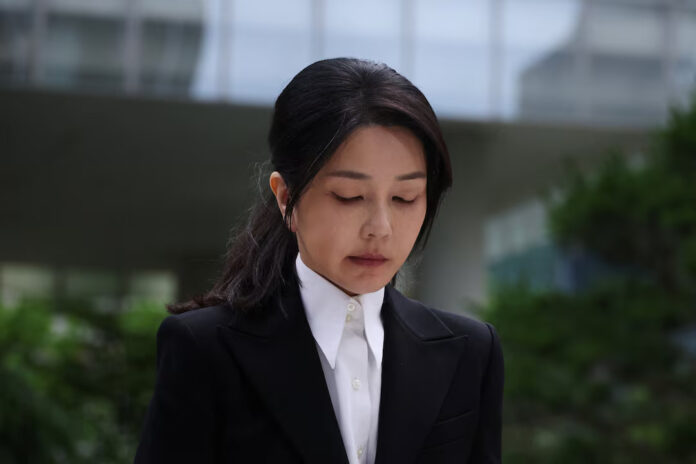
South Korea’s former first lady Kim Keon Hee was arrested late Tuesday on multiple charges, including stock manipulation, corruption, and violations of political funds laws, prosecutors confirmed.
The Seoul Central District Court approved an arrest warrant for the 52-year-old after reviewing an 848-page prosecutorial brief detailing her alleged “unlawful acts,” citing a high risk of evidence tampering. The move marks the first time in South Korea’s history that both a former president and first lady are behind bars.
Kim’s detention follows the dramatic downfall of her husband, former president Yoon Suk Yeol, who was impeached in April over his controversial December 3 martial law declaration that deployed soldiers to parliament.
The measure was swiftly overturned by opposition lawmakers. Yoon was arrested on July 10 after a snap election in June brought new leadership to the Blue House.
Prosecutors allege Kim was involved in stock manipulation schemes, illicit political funding, and interference in her husband’s party’s parliamentary candidate nominations, breaching election laws. Public criticism against her intensified in 2022 when a left-wing pastor filmed himself handing her a Dior handbag, which she appeared to accept.
Yoon, during his presidency, vetoed three parliamentary bills seeking special investigations into her conduct, with his last veto issued just a week before declaring martial law.
Under prison rules, Kim has been moved to a 10-square-meter solitary cell in a separate detention facility about 20 kilometers from where Yoon is held. The cell contains a fan, small table, shelf, sink, and toilet, but no air-conditioning or bed.
She will wear a khaki prison uniform, be assigned an inmate number, and have a mug shot taken. Her presidential security protection was terminated immediately upon the court’s decision.
Kim can be held for up to 20 days before formal indictment. If indicted, she could remain in detention for up to six months. Legal experts say she may challenge the warrant or seek bail, but both are unlikely to succeed given the perceived risk of evidence destruction.
Written By Rodney Mbua


















